 Petzlover
Petzlover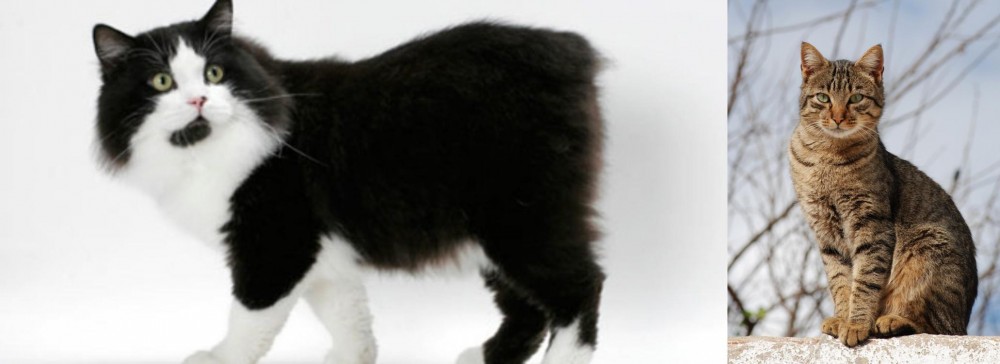 Both Cymric and Tabby are originated from United Kingdom. Both Cymric and Tabby are having almost same weight. Cymric may live 5 years less than Tabby. Cymric may have less litter size than Tabby. Both Cymric and Tabby requires Moderate Maintenance.
Both Cymric and Tabby are originated from United Kingdom. Both Cymric and Tabby are having almost same weight. Cymric may live 5 years less than Tabby. Cymric may have less litter size than Tabby. Both Cymric and Tabby requires Moderate Maintenance.
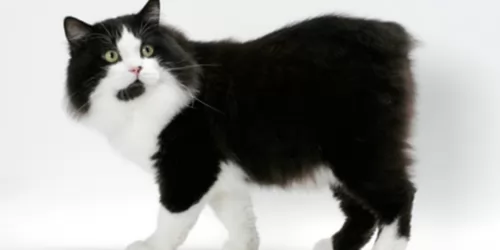 The Cymric is a naturally tailless cat although having said that, not every Cymric is completely tailless.
The Cymric is a naturally tailless cat although having said that, not every Cymric is completely tailless.
It’s actually a long-haired Manx cat this and thought to date back to 1750. It is one of the oldest cat breeds.
Known also as rumpies or stumpies, the taillessness of the Manx an Cymric started as a mutation among the island's domestic cat population. Long-haired kittens were born to Manx cats on the Isle of Man, but in the 1960s, similar kittens were born in Canada and then specifically bred.
The Cymric became popular, even though it took years for the Cymric to be recognized as a breed of its own by cat associations. The International Cat Association (TICA) gave the cat breed status in 1979.
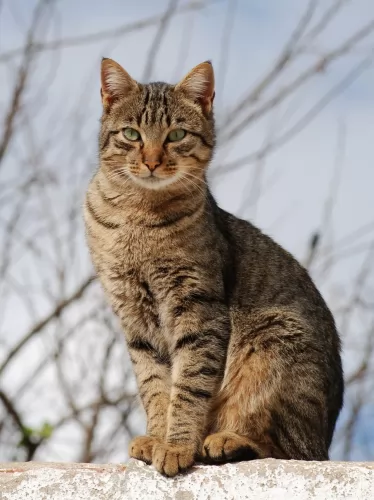 The Tabby isn’t a cat breed but rather a certain cat pattern. So the Tabby has lots of different coat colors and patterns and the cat comes in different sizes.
The Tabby isn’t a cat breed but rather a certain cat pattern. So the Tabby has lots of different coat colors and patterns and the cat comes in different sizes.
You get the mackerel Tabby, the classic Tabby, the spotty Tabby and the ticked Tabby. The Tabby is a domestic cat. It is thought that today’s Tabby’s originated from the African wild cat because the markings are so similar.
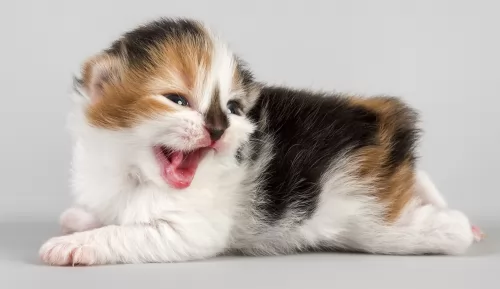 The Cymric is a medium-sized cat that can weight between 4 and 6kg and he is round in shape and stockily built. The back legs are also longer than the front legs.
The Cymric is a medium-sized cat that can weight between 4 and 6kg and he is round in shape and stockily built. The back legs are also longer than the front legs.
He has a short, arched back with a broad rump. The unusual but beautiful Cymric has long hair and a thick double coat that is glossy and vibrant. Some cymrics have tufts of hair on their ears and toes.
All colors of the coat are available and it can be solid or patterned - white, blue, red, black, cream, tortoiseshell etc.
The eyes are large and can be green, copper, or yellow. The ears are widely spaced with rounded tips.
The Cymric is described as a sweet-natured, placid cat that doesn’t get ruffled over much, though he does get excited about his human family.
He tends to be reserved around strangers. He is a loving cat and simply loves being around his human family. He is a strong cat and intelligent too and he is quite capable of watching you and then learning how to open doors and get into cupboards.
He is sociable and talkative too and enjoys ‘talking’ to you, especially when he has attached himself to one member of the family. He thrives on his human family's company and is a cat that provides lots of entertainment for you. Even though he becomes attached to one family member, he gets on well with children and pets in the home.
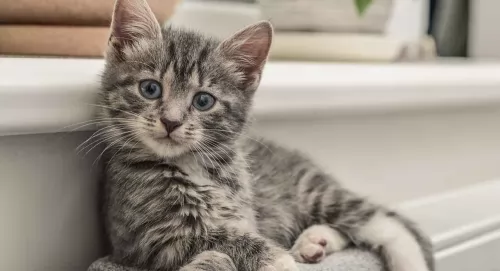 The Tabby is any domestic cat. They’ve got a distinctive 'M' shaped marking on their forehead.
The Tabby is any domestic cat. They’ve got a distinctive 'M' shaped marking on their forehead.
The Tabby cat isn’t a breed of cat but actually a coat type and in fact, there are quite a few cat breeds with the Tabby pattern.
Tabby is a color pattern in other words and it means you will find stripes, spots, and whorls of color. Tabby cats can range in size because of the different breeds. They can be medium to large and weight between 3 and 7kg.
The eye and ear shape will also vary according to the different breeds as well as the thickness of the tail.
Your Tabby is a friendly, social cat. He makes an excellent pet and companion. The orange and ginger tabbies are more feisty and strong-willed. These cats cat can be any personality really and you might have an aloof cat but you could also have a highly social, vocal Tabby.
Most times you will get an active, playful, friendly cat that will love the company of his human family.
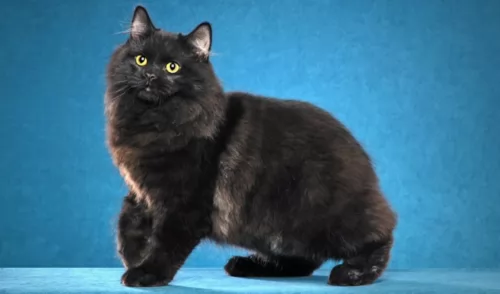 Yes, the Cymric has quite a few health issues but many people choose to overlook these as they love the personality of the lovable cat breed.
Yes, the Cymric has quite a few health issues but many people choose to overlook these as they love the personality of the lovable cat breed.
It’s such an intelligent cat too but best of all it offers total love and companionship.
It is certainly an unusual domesticated cat breed that appeals to many different people and it is guaranteed that you’ll also find him one hang of a feline pet.
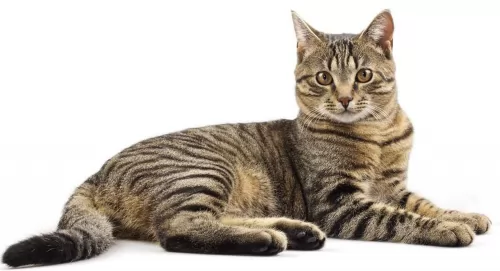 When you bring a Tabby cat into your home, you can't tell what personality he will have. A lot depends on the lifestyle you provide him with.
When you bring a Tabby cat into your home, you can't tell what personality he will have. A lot depends on the lifestyle you provide him with.
Some Tabby cats are social and friendly while others are more shy. One thing is sure, they all thrive on the love and attention of their human families. This popular cat is guaranteed to make you a most wonderful pet and companion.
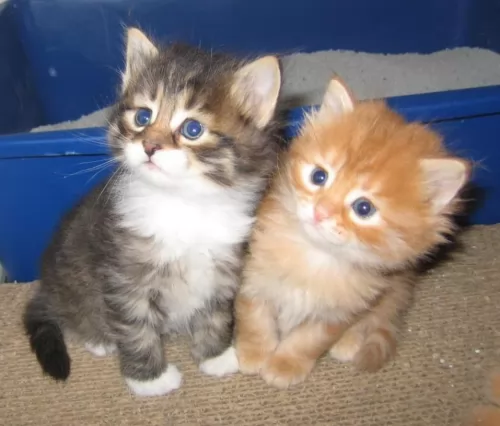 If you look after your Cymric well, he can live to a good age of up to 15 years. The lack of a tail is a genetic defect and the cat’s deformed spine can cause health problems including arthritis.
If you look after your Cymric well, he can live to a good age of up to 15 years. The lack of a tail is a genetic defect and the cat’s deformed spine can cause health problems including arthritis.
In fact, the cat’s lack of a tail causes some serious diseases. The defective gene responsible for the loss of the tail affects the spine and can actually cause spinal problems. In fact, when completely tailless Manx cats mate, the defects can be so severe that some of the offspring are born dead.
People often speak of these health issues of the cat as the Manx Syndrome.
Some cats have a narrowing of the anal passage and this can lead to bowel blockages. Make sure to get your Cymric vaccinated against deadly cat illnesses and ensure veterinary checks for parasite control and illness.
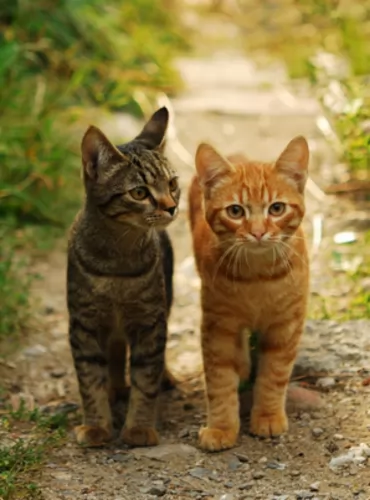 Many cats can develop liver and kidney troubles as they get older so it’s important to visit a vet regularly in order to make sure they are in good health.
Many cats can develop liver and kidney troubles as they get older so it’s important to visit a vet regularly in order to make sure they are in good health.
Most domesticated tabby cats live for 12 to 15 years and this means you can enjoy many years of good friendship from your Tabby.
The liver is an important organ with a host of functions. We know it plays an important role in removing toxic substances from the blood. Because this organ works to rid the body of so many different substances, it can become damaged.
Liver disease results in inflammation, which is known as hepatitis. If left, it can lead to loss of function because of scar tissue. Luckily, liver disease in cats can be treated and managed,
Age, certain diseases and certain breeds of cats are more susceptible to liver disease. Obesity too, can contribute to liver disease. The signs of liver disease are weight loss, increased thirst, vomiting, drooling, jaundice and loss of appetite.
If your cat is diagnosed with liver disease, speak to your vet about a special diet for your cat.
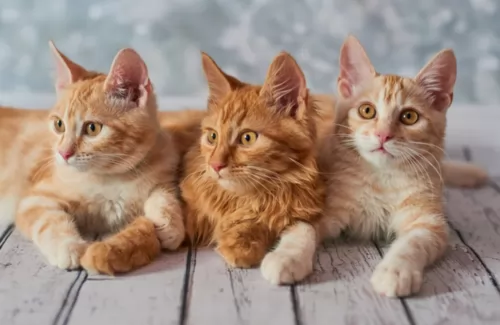 As a kitten, provide your Cymric with food appropriate to its age. Once your cat turns one, you can start feeding him adult cat food. There are a whole lot of excellent commercially manufactured cat foods – dry and canned foo – but always choose a high-quality one where the first ingredients listed are always meat. This is because the cat is a carnivore. Make sure the food has taurine, which is an essential amino acid for cats.
As a kitten, provide your Cymric with food appropriate to its age. Once your cat turns one, you can start feeding him adult cat food. There are a whole lot of excellent commercially manufactured cat foods – dry and canned foo – but always choose a high-quality one where the first ingredients listed are always meat. This is because the cat is a carnivore. Make sure the food has taurine, which is an essential amino acid for cats.
This cat has a thick coat and he will need a brush at least twice a week, especially as he is a high shedding cat. While you brush your cat, look out for any problems such as red areas, hair loss, sores or irritated skin. Take note of any unusual lumps.
Some people take their Cymric to the vet once a year for a routine medical check-up. They have the nails clipped and the ears and teeth checked. It is also a great way to get your queries answered on the nutritional and health needs of your pet.
You will need to have your Cymric’s nutrition checked to keep him in tip-top condition. The Cymric cat has a good appetite and his build can allow him to put on weight easily. Obesity can put pressure on the spine and lead to all kinds of joint problems.
Provide your cat with a litter box and keep it immaculately clean.
 When your cat is a Tabby, he could have short or long fur, and a weekly brushing will be necessary to remove dead hairs and dust from the coat.
When your cat is a Tabby, he could have short or long fur, and a weekly brushing will be necessary to remove dead hairs and dust from the coat.
While you brush your cat, feel for any irregularities such as lumps or cuts. A lump should be examined by the vet.
As already mentioned, good food is key to good health, and as your cat is a carnivore, he will require meat. There are many excellent cat food manufacturers who produce cat food with all the nutrients your feline friend requires.
If your pet needs to be transported anywhere, such as to the vet, make sure he can be carried safely by putting him in a cat carrier box.